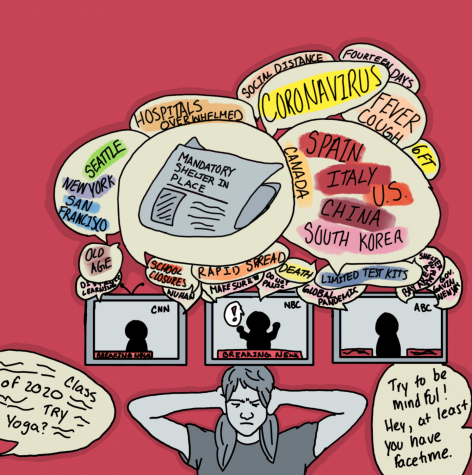At your service: Why Lowell needs a community service requirement
At a school where most student learning is confined to the classroom, it can be difficult to recognize that some of the most meaningful and beneficial educational experiences often take place outside of class. With academics being the top priority for the majority of Lowell students, many may not take the time to notice what is happening outside of 1101 Eucalyptus — in their own community and city — and to reflect on the amount of human suffering that exists in one of the wealthiest cities in America. This is why Lowell should implement a 30-hour community service graduation requirement. Not only would the addition of this graduation requirement aid in improving San Francisco’s communities and neighborhoods, but it would also impart a host of benefits upon students.
If students are concerned that such a requirement would be one more burden to complicate their already busy lives, we ask that they reflect on the following: A 30-hour requirement, spread over four years, amounts to just 7 1/2 hours of community service per year and less than nine minutes per week. This amount of time is quite small, especially in comparison to the community service requirements at another academically rigorous San Francisco high school, Saint Ignatius College Preparatory, which requires 100 hours of community service, and within a nearby school district, Gilroy Unified School District, which calls for a minimum of 80 service hours from students. In Lowell’s case, a 30-hour requirement would be lengthy enough to provide students with an entrée to learning the importance of giving back to their community without negatively impacting their grades and other responsibilities.
For the many Lowellites who are already performing 30 hours or more of community service through their membership in one or more of the approximately 40 clubs devoted to volunteering, such as BuildOn, Key Club, and the Red Cross Club, this requirement would also be a way to formally encourage and acknowledge their efforts.
If students start their community service work with even a hint of enthusiasm, that hint may grow into a zeal for giving back to their community.
Moreover, with immense academic pressure and competition contributing to the rising number of mental health issues among teenagers, one of the most significant benefits of implementing a community service requirement at Lowell could be improved mental health and overall well-being among the student body. Many studies have conclusively shown volunteer work to be linked to better mental health, including one conducted by the UnitedHealth Group. This study found that 78 percent of volunteers had improved moods and 94 percent had lower stress levels as a result of volunteer work.
Equally significant, including community service as a graduation requirement would align with and help to promote Lowell’s Expected Schoolwide Learning Results (ESLRs). Every classroom at Lowell contains a poster listing the ESLRs, which outline the characteristics and values that an ideal Lowell student will exhibit. However, very little is done by the school to actively promote and ensure that students follow these guidelines. Community service would assist in ensuring that students live up to the ESLRs, specifically the expectations that students “engage respectfully and civilly with people of varying backgrounds and perspectives” and that they “contribute time, energy, and talent to improve the quality of life locally and globally.” Through community service activities, students have the opportunity to meet people with unique perspectives and to build goals that are not solely focused on their own academic and personal success, but on engaging in civic life and improving the lives of others.
With more than 800 nonprofit organizations in San Francisco alone, a community service graduation requirement would also give Lowellites the opportunity to explore these nonprofits and find one that is dedicated to an issue or activity they are passionate about, whether that be by volunteering at a STEM-oriented organization, such as Techbridge Girls, or a writing-oriented nonprofit, such as 826 Valencia.
We acknowledge that it is unrealistic to believe that all Lowell students will be enthusiastic about adding community service as a graduation requirement. That being said, if students start their community service work with even a hint of enthusiasm, that hint may grow into a zeal for giving back to their community. If just a quarter of each graduating class feels that ardor as an outcome of their community service experience, imagine the impact that these students could make on society.










